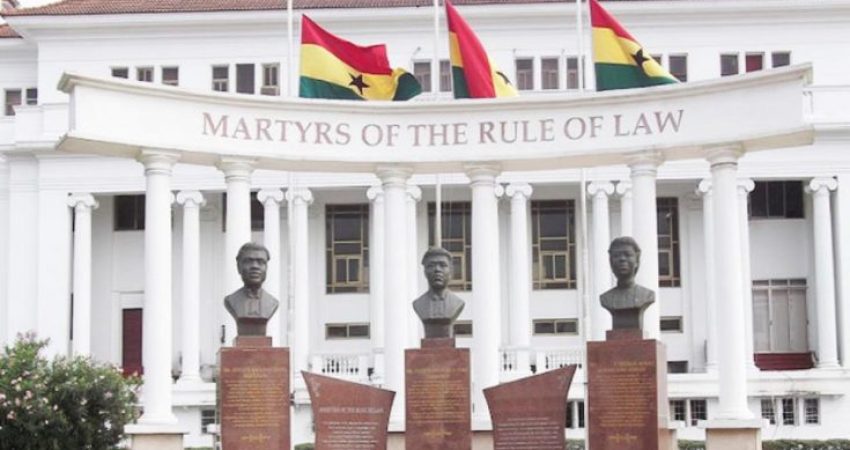The Supreme Court has reject the application by the Speaker of Parliament, Alban Bgabin to set aside its earlier ruling that stayed the execution of the Speaker’s declaration of four seats vacant stating that the grounds cited by the Speaker are unfounded.
During a live court proceeding on Wednesday, October 30, 2024, the Supreme court, presided over by the Chief Justice, Justice Gertrude Torkonoo maintained that, the Speaker of Parliament, Rt. Hon. Alban Sumana Kingsford Bagbin’s application lacks merit.
“We have considered the application, and we have come to the conclusion that the grounds supporting the application have no merit,” the Chief Justice stated.
Thadeus Sory, in his response, said, “As the court pleases.”
It is recalled that the leader of the NPP caucus in Parliament, Alexander Afenyo-Markin filed an ex parte motion following the Speaker’s declaration of vacant seats of some four Members of Parliament, however, the Supreme Court ordered for a stay of execution of the Speaker’s declaration.
In a counter reaction, Alban Bagbin filed an application at the Supreme Court through his lawyer, Thaddeus Sory.
The Speaker’s position was that the Supreme Court misapplied the law by putting on hold the execution of his ruling because it was a non-judicial decision.
The Speaker in his reliefs prayed the court to strike out its stay of execution of his ruling on the declaration of the four vacant seats.
The Speaker further sought an order from the court to set aside the writ filed by the, Alexander Afenyo-Markin, Leader of the New Patriotic Party (NPP) caucus which sought to prevent the Speaker from making any ruling on the four seats.
According to Alban Bagbin, the Supreme Court had no powers to put on hold rulings of non-judicial bodies such as Parliament but has the power to put on hold rulings of courts.
In his statement to the Supreme Court, the Speaker stated, “In terms of orders staying of execution of rulings, the Supreme Court’s powers, under the 1992 Constitution of the Republic of Ghana and statute, to stay execution of rulings are limited to rulings of itself and of courts lower in the judicial hierarchy but do not extend to a ruling of the Speaker of Parliament who is not part of the judicial hierarchy.”
“With regard to the first defendant’s rulings in Parliament, a separate arm of Government, therefore, such rulings are not rulings within the judicial hierarchy so as to be the subject matter of ‘an application for stay of execution’ and a judicial order staying their execution,” it added.
But in her ruling, the Chief Justice explained, “Given the irreparable harm that could be caused to the constituencies—comprising hundreds of thousands of Ghanaians—who would be left without MPs and without the possibility of by-elections, as well as the irreversible impact on MPs potentially losing their seats just weeks before the December 7 election, it is necessary for this court to address this dispute promptly rather than issuing a 10-day interim order on Article 97(1)(g) as interpreted by the Speaker.”
She added that it is vital for the Supreme Court to expedite proceedings, bridging the standard 14-day period, by allowing the constitutional action to proceed through a statement of case, requiring parties to submit their claims within seven days, and moving quickly to resolve the issues presented.
According to the Chief Justice, had all parties complied with these directives within the suggested timeline, the case could have been resolved within the 10 days the applicant requested.





